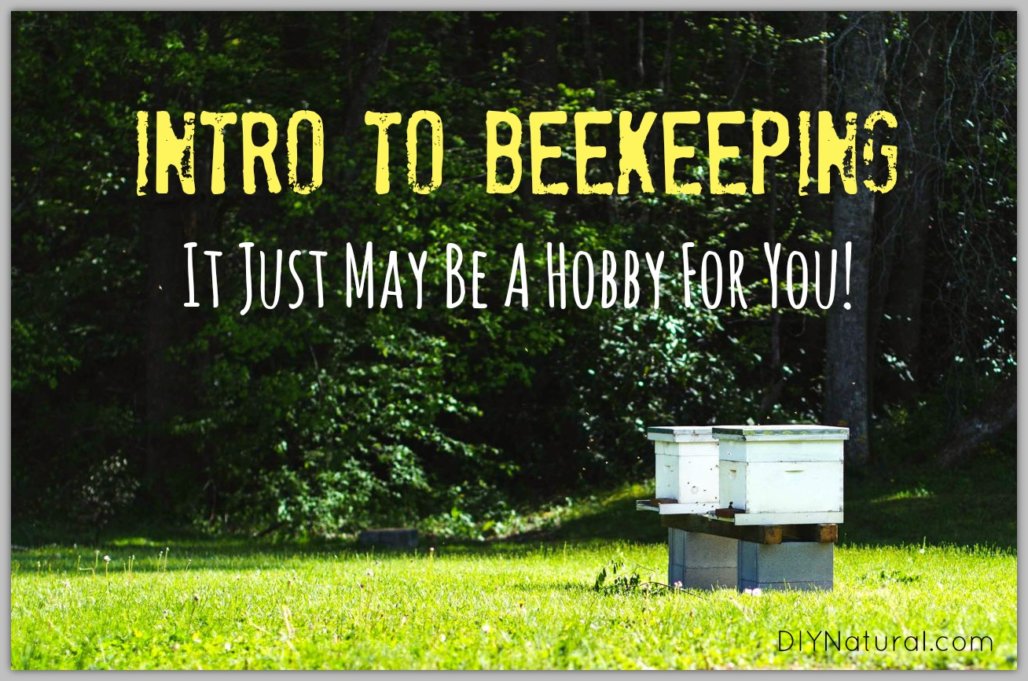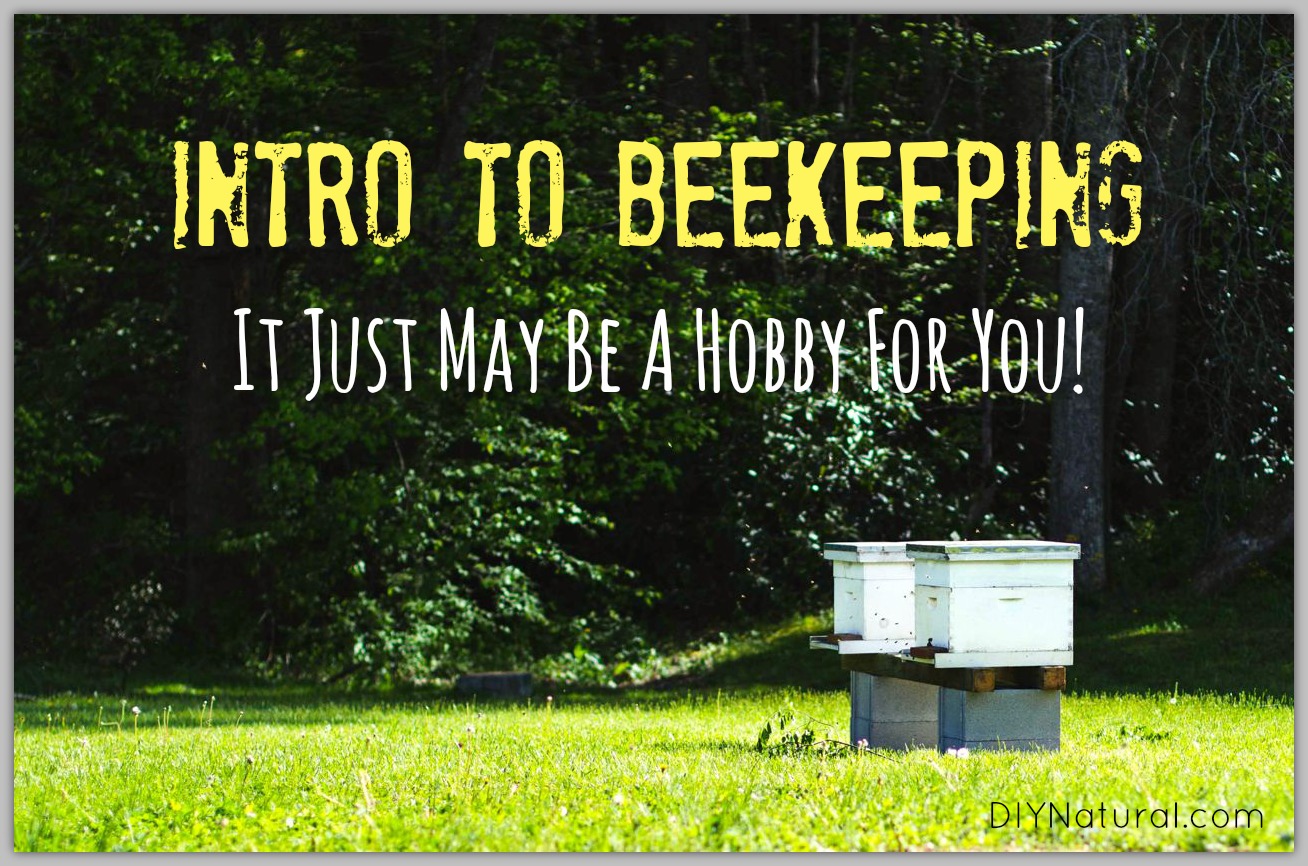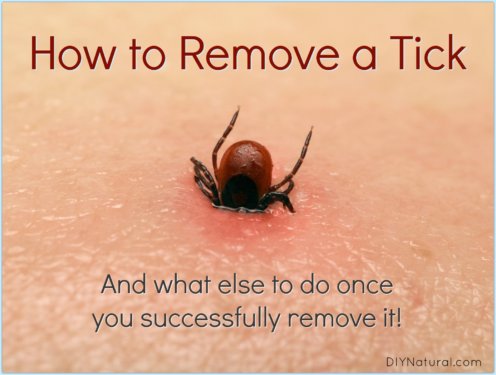
Want to learn how to keep bees? Let’s take a look at a few considerations before you start beekeeping and see if it’s a hobby for you.
A few years ago, when my husband and I had just started falling in love with the idea of homesteading, he brought up the idea of beekeeping. It was something he’d always been interested in, and he wanted to try it out himself.
I was leery at the time. I had a disdain for any insects that seemed to be designed especially for inflicting pain, and we didn’t know how to keep bees.
How We Started to Keep Bees
Setting up a home for them in our yard seemed unwise at best. But my husband wanted bees, and he doesn’t ask for much, so I didn’t fight him on it. I bought him a hive for Christmas, placed an order for the bees, and within the next few months, he became a beekeeper. This is where I stress that he became a beekeeper. I enjoy watching the bees from afar and reading about them, but I don’t do the keeping. I’ve donned a veil exactly once, and that was only to take pictures … with my zoom lens.
We’ve had several hives since that first one, including the two we started just this spring, and we’ve learned tons since then. I, for one, thought that beekeeping would be a fairly simple endeavor. Bees survive in nature without any human intervention, so shouldn’t they be able to survive in a specially designed hive mostly on their own? From my research, and conversations I’ve had with beekeepers, it’s evident that beekeeping, while never as simple as I’d first considered it to be, has gotten harder in the past ten or twenty years. We’ve talked about the decline of pollinators, and honeybees kept in hives are no exception. Taking on hives is a big responsibility, and not a decision to be made on a whim.
There are several things to consider before you decide to take on the responsibilities of beekeeping.
How to Keep Bees
In some ways, keeping bees is a lot like real estate…
Location Location Location
Do you have a lot of acreage and not many neighbors? That’s awesome. Finding a spot for your beehive is going to be much easier for you than for your urban counterparts. Here’s what you need to look for:
- A sunny location, especially a place with abundant morning sun
Bees thrive in sunlight, as it keeps their hives warm and dry. Ideally, the entrance will face south, but that isn’t always possible. Try to find a location that isn’t too windy, too. - Proximity to a water source
Bees require a steady water source to help keep them alive and turn their pollen stores into honey. They’re best placed within ¼ mile of either a stream, pond, or another water source. - Proximity to pollen sources
Bees find pollen in all sorts of places – poplar trees, flower gardens, clover fields, etc. If you’re in a rural area, your bees will almost certainly be able to find the pollen they need.
I’m not saying that you can’t have a beehive if you live in the suburbs or the city. Many people keep bees in urban areas, but you will have more challenges. Zoning ordinances and homeowners’ associations often place restrictions on beehives, so you’ll have to check to make sure that you can legally have one on your property. Finding water and food sources can be more challenging in the city too, but even something as simple as a child-sized swimming pool can keep your bees properly hydrated. This article from Modern Farmer goes more in-depth on the topic of urban beekeeping, as does this article from the Mid-Atlantic Apiary Research and Extension Consortium.
Cost of Keeping Bees
Keeping bees will cost you in two ways – time and money. When you first set up your hive(s), you’ll be checking on your bees every few days. This means suiting up, starting up your smoker (sometimes), and spending significant amounts of time inspecting your hive. After your hive is established and doing well, you’ll still need to check them every week. In a way, the bees will become your pets. Expect them to take up your time accordingly.
Bees cost money, too. This is a quick, approximate breakdown of the upfront costs. Costs will vary based on your supplier:
- Full hive and all components: $100
- Nuc package of bees: $130
- Bee suit/protective gear: $40
- Hive tool: $8
- Bee smoker: $20
Total: $298
That is a very basic list of what you’ll need to begin beekeeping. It doesn’t take into account supplies for collecting and storing honey, replacing frames, or troubleshooting potential problems with your hives.

Beekeeping Anxiety
As I said before, my husband is the beekeeper in this family. Part of the reason that I’ve never done much work on the hives is that I’m genuinely scared of the bees. I can happily observe them one or two at a time, but just the thought of opening up the hive and letting them crawl on my hands is enough to make my stomach hurt. Could I get over my fear of bees? Probably, eventually, if I put in a lot of work. I’m not saying that anxiety or a fear of bees is a deal-breaker – I’m just saying that it’s something you need to think about.
Can you practice with an experienced beekeeper before you invest in your hive? Do you have experience in successfully overcoming anxieties? Just know that beekeeping is a hands-on hobby, and those hands are going to have to be yours. It would be a pity to invest in your apiary only to decide too late that you won’t be able to give your bees the care and attention they need.
Is It Worth It to Keep Bees?
I know I’ve given you a lot of information just now, some of it overwhelming. Bees will take up some of your time and money, and they will almost certainly sting you at some point. You will work and work and work on them and sometimes you’ll lose your hive anyway. There aren’t many guarantees in beekeeping.
But having said all of that, keep in mind that we still have bees. Every time my husband gets a new nuc to start out, he’s as excited as a kid on Christmas morning. Beekeeping is a hobby that requires dedication, but it’s worth it for so many reasons.
Honey
I could go on about the benefits of raw, local honey for pages, but you probably already know that it’s one of the healthiest sweeteners you can find. Local honey can help soothe allergies, and it’s useful in many herbal remedies. The stuff is magical. Though I doubt we will ever harvest enough honey to equal the monetary value of what we’ve put into our hives, I swear the honey tastes sweeter when you know it comes from your own yard.
Pollinators
I haven’t been writing here long, but I’ve been here long enough that you know I care about pollinators. They are diminishing, and most beehives house 12,000 honeybees. Think of all of the pollination power you’re unleashing on your garden by housing 12,000 honeybees on your property!
Satisfaction
My husband, like most beekeepers, loves spending time with his honeybees. He is completely focused when he works with them, and he’s able to forget about everything else that’s on his mind. When he sees one of his bees out in our yard, he smiles and watches it on the flowers. There aren’t many hobbies as fun and as satisfying as beekeeping.
Behind me, as I write this, is a bowl slowly filling with honey, a frame propped up within it and oozing the stuff out. Our hives are in the backyard, we have jars of honey in the pantry, and my husband’s bee suit hangs in the closet. I’m feeling pretty good about having bees, and a little more hopeful for the future of pollinators.
What do you think? Is beekeeping a hobby for you?
*******




My 20 year old daughter began keeping bees only a week ago. She spent a year researching and learning all she could from books, videos and how to blogs. Her love for beekeeping began in grade school after reading a book called “The Hero and the Crown” by Robin McKinley. She saved all her money from Christmas and she also works a part-time job to pay for it. She used her bee suit for the first two days, but that was it. She doesn’t wear the suit anymore, nor do I when I am there taking photos for her. She has checked the progress of her bees making new comb, placing honey and has even seen the eggs the queen has laid. All in one week! They are busy as…well, bees. 🙂 Already people at church, family members and a nearby health food store are waiting patiently for her honey. It is something that I, myself wanted to do but was too scared. I am glad she was brave because now I get to be a part of it. If you are interested in bees, finding a local beekeeper to work alongside will be a great benefit to overcoming fear with familiarity.
Funny to see this article hit my inbox, I have just spent the last three days starting to ruminate on bee keeping. I have seen a lot of information about setup, but not much on maintenance. What does your husband find himself having to do on a weekly basis?
And did he buy any equipment for extracting the honey, or does he just make do with equipment you already had on hand?
I’ll ask him more specifically when he’s nearby, but I know he checks each week to make sure that the queen is healthy and that the hive isn’t trying to make a new queen. He also feeds them before and after the pollen is at its heaviest.
We haven’t bought extractor equipment because it’s so expensive–he designed something himself once (it worked, but wasn’t a perfect system), but usually he let it drip slowly or make it with comb included.
Thank you for your article – I am new to beekeeping this year, and I am loving it. I am an urban beekeeper, and I am required by my city to be certified. So I am currently taking a 3 month class (meet about 2 times a month for field experience after the initial 8 hour, day long class) – if anyone is worried about keeping bees, look into your local bee associations and see if they offer trainings and/or classes. Well worth the money. I would like to say that in my area, Northeast Washington, the start up cost for a basic hive was closer to 200-250 – this was for two deeps and two honey supers, and I do keep a ten frame which can be more expensive. But honestly – well worth the money invested. It is a great hobby, you get to help pollinators, and you will reap the benefits of honey eventually.
Hi
Beekeeping is awesome! My father did for most of his life. And not only is the honey a wonderful ‘fruit’ to pick but also the other products from the hive with their healing characteristics, pollen, gelee royal and propolis.
If you can put the hive on a underground water flow or break or better a crossing of underground water…the bees love that and the honey gets additional cancer fighting properties.
Thank you for such a thoughtful article. I’ve had the notion to keep bees especially in the past few years that I’ve been seriously gardening. With all the points you’ve written about, I feel I’m better equipped to move in that direction. Thank you for being supportive of your husbands passion! Blessings!
Thanks for the kind words, Cheryl! I’m glad this was helpful to you 🙂